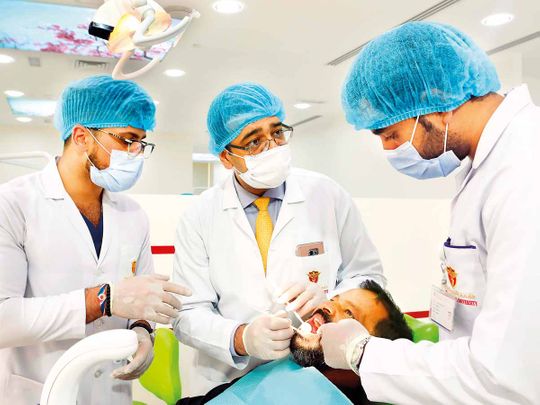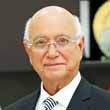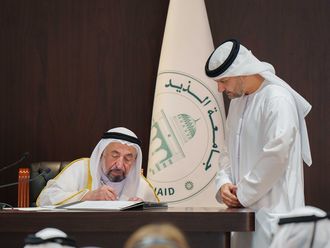
How does GMU support students and teachers to mitigate the impact of COVID-19 on education?
GMU has shown how an unfortunate event like the Coronovirus outbreak has the power to shift standard practices, bringing forth a heightened ability to think and act, and creating a new and better way of doing things.
We are using the COVID-19 precautionary period as an opportunity to evolve beyond standard learning practices, by implementing new and innovative e-learning capabilities.
Our e-learning methodology uses webinars and virtual reality tools. For practical sessions, we are using advanced training technologies like dry labs and virtual microscopy. The most important aspect of our distance e-learning process is that we have increased the degree of engagement with the students.
How do you plan to tackle admission process this year?
GMU’s admission process is active, with the university enabling students and parents to complete the admission formalities online, without having to visit the university in person.
Student interviews are conducted through video conferencing and provision has also been made for the students to take the eligibility tests online. For those students whose qualifying exams have been postponed by various boards, GMU is considering their performance in the periodic examinations.

Our e-learning methodology uses webinars and virtual reality tools. For practical sessions, we are using advanced training technologies like dry labs and virtual microscopy.
Are you planning to introduce any new programme this year?
We are in the process of getting approval for the Masters in Drug Development and Innovation programme. We also plan to launch a PhD programme in collaboration with a French university, in addition to introducing several new certificate programmes in different healthcare-related streams.
Finally, what are the key strengths of Gulf Medical University?
We offer students an early exposure to clinical training and experience with patients from diverse ethnic/cultural backgrounds. We have a robust outcome/competency-based curriculum aligned to international framework and experience in cutting-edge research infrastructure and facilities.
Students get global exposure from the elective programmes and international collaborations with leading universities in the US, Europe and the Far East. Furthermore, GMU has prestigious accreditations and international collaborations that give wide recognition to all its programmes.
GMU - At a glance
With students from over 86 nationalities, Gulf Medical University — established by Thumbay Group in 1998 —has six colleges, offering 26 accredited programmes.
The undergraduate programmes offered by GMU include Medicine, Dentistry, Pharmacy, Nursing, Biomedical Sciences, Healthcare Management & Economics, Anesthesia Technology, Medical Laboratory Sciences, Physiotherapy, Medical Imaging Sciences and Associate Degree in Preclinical Sciences.
Graduate programmes are offered in Public Health, Physical Therapy, Endodontology, Periodontics, Clinical Pharmacy, Healthcare Management & Economics, Health Professions Education and Medical Laboratory Sciences.
GMU’s College of Healthcare Management and Economics is a unique, specialised college which aims to prepare the graduates for careers in healthcare management, health economics, policy-making and administration in the region and internationally. The college offers Bachelor of Science in Healthcare Management and Economics (BSc. HME) and Executive Master in Healthcare Management and Economics (EMHME). The programmes are offered in collaboration with leading international universities. The college is a member of the European Healthcare Management Association.
GMU graduates are given priority for employment with the various healthcare establishments of Thumbay Group, including the Thumbay Hospital network, as well as Thumbay Clinics, Thumbay Pharmacies and Thumbay Labs.
Advertiser's content













